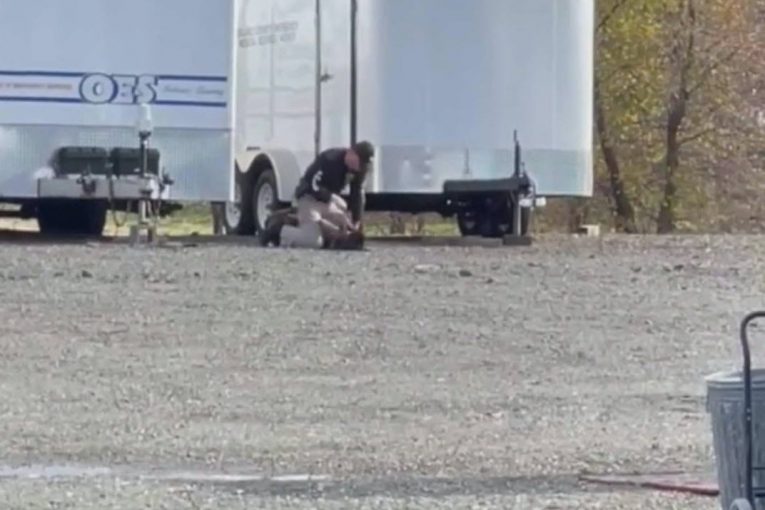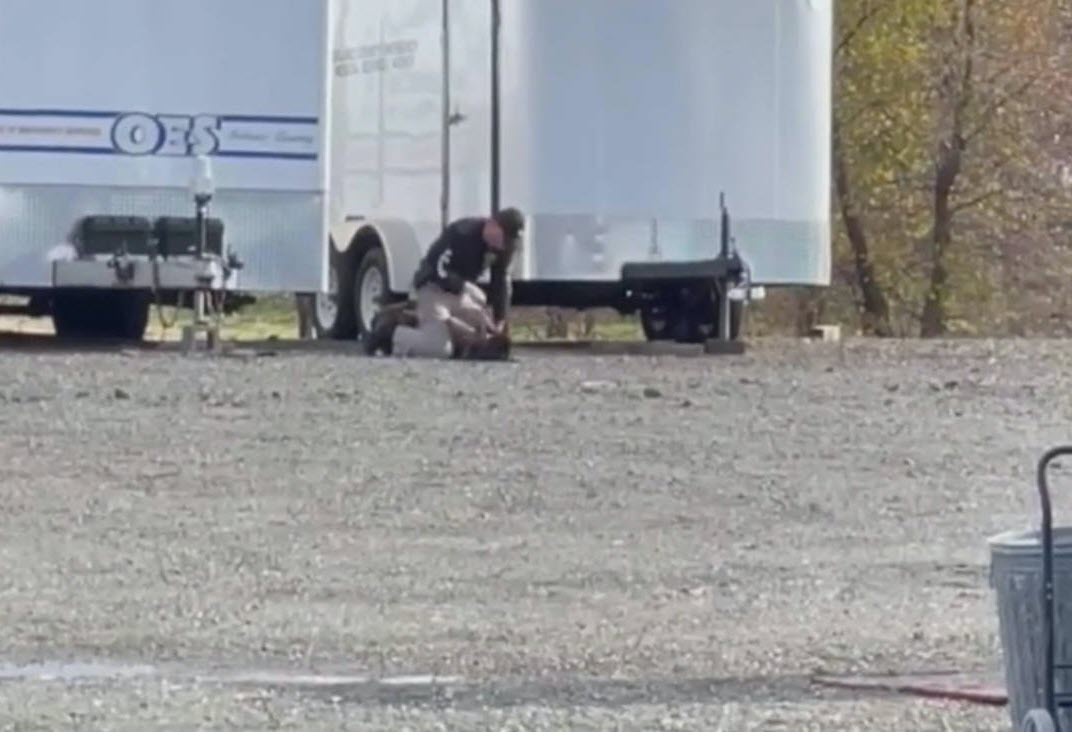

By Matthew Keys
An independent investigator who was hired to conduct a thorough review of the Vacaville Police Department’s working canine program said he did not agree with the findings of an animal behavioral therapist who examined a dog after he was punched by his handler last year.
The auditor, former Oxnard police officer Bill Lewis II, said he found the examination by Anchor Therapy Clinic of Sacramento to be inconsistent with memos from a veterinary clinic he reviewed shortly after the incident occurred in December.
The dog in question, Gus, is no longer in the care of the Vacaville Police Department. The agency drew swift condemnation after an eyewitness recorded a short video of a training session in which Gus was punched once in the face by his handler, a Vacaville police officer.
The agency promised a thorough investigation into the incident, which included medical and psychological examinations of Gus.
On Thursday, Solano NewsNet reported on the contents of a 12-page document created by Anchor Therapy Clinic, a Sacramento-based firm that specializes in the behavior and psychology of law enforcement canines, among other animals. The report concluded that Gus was malnourished, fearful of people, unruly and traumatized.
The report was released as part of a presentation conducted by the Vacaville Police Department in front of the city council earlier in the week. The presentation mainly focused on an  investigation conducted by Lewis into the overall canine program, which the auditor found to be mostly satisfactory but in need of some changes.
investigation conducted by Lewis into the overall canine program, which the auditor found to be mostly satisfactory but in need of some changes.
The psychology report received little mention, but it was published as a public record along with other investigatory documents shortly after the presentation concluded.
Responding to an early morning inquiry from Solano NewsNet on Thursday, the agency’s interim police chief Ian Schmutzler said he was troubled by the results of the evaluation conducted by Anchor Therapy Clinic and decided to get a second opinion.
That second opinion came from Lewis, who said he had strong concerns about the findings of the evaluations and determined them to be inconsistent with his own opinions.
In a document supplied to Solano NewsNet by the police department, Lewis wrote that the Anchor Therapy Clinic report “lacks foundation in evaluating the department’s [canine] training program” and that it did not reflect medical exams from a vet that he reviewed as part of his investigation.
Those exams, Lewis claimed, proved Gus was a healthy, well-fed dog who behaved himself during a check-up with a veterinary clinic in Sacramento immediately after the incident. A follow-up examination conducted the same day as Anchor Therapy’s first evaluation of the dog also showed Gus was “in good health with no pain nor behavioral problems,” according to a doctor’s opinion cited by Lewis.
Lewis criticized Anchor Therapy Clinic for not reviewing the medical records supplied to him as part of his investigation. In its own report, Anchor Therapy Clinic said it did not review those records because the police department never provided them.
In an e-mail on Thursday, Schmutzler suggested the examination by the veterinary clinic was more reliable than the report produced by Anchor Therapy Clinic because “while Anchor Therapy does do valuable work with animals, including canines, they do not have a primary focus on police working dogs, which [the veterinary clinic] does.”
The Anchor Therapy Clinic’s examination of the dog was carried out by Kevin Cameron, a certified partner trauma therapist who specializes in animal assisted therapy. The evaluation, which spanned three days, involved physically examining the dog’s health, socialization, workability and his behavior in a number of different environments.
After reading the troubling Anchor Therapy Clinic report, Schmutzler said they asked Lewis to review that document against the dog’s medical reports.
Lewis submitted his opinion in a letter dated April 26, more than three months after Anchor Therapy Clinic’s report and one full day before the police department presented before the city council.
Lewis — whose opinions contradicted many of Anchor Therapy Clinic’s findings — admitted he never physically examined Gus as part of his investigation. Instead, his conclusions were based on the medical records Anchor Therapy Group did not get to examine coupled with his own observations about the broader canine program within the Vacaville Police Department.
While the animal therapist concluded Gus and his handler were not properly trained, Lewis concluded that the agency’s training met state requirements and standards. Lewis also cast doubt on the expertise of the examiner, saying it was not clear if Cameron had the five years of training needed to opine on the effectiveness and qualification of the agency’s canine program.
“It is not clear if Dr. Cameron ever worked or trained a patrol dog, as his background appears to be detection-related,” Lewis wrote.
Lewis also attacked a series of evaluations administered to Gus to see if he would meet the criteria for working as a police canine. That evaluation included elements of California’s POST certification process for police canines. According to Anchor Therapy Clinic, Gus failed all five tasks that were performed as part of the POST evaluation.
Lewis wrote that the evaluation was suspect because the report didn’t include information about which commands were given to Gus. He also found it “difficult to believe” that Gus was unable to locate hidden substances as part of a supplemental test given to the dog, but said if that was the case, it might have been the examiner’s fault.
“If the dog did not understand the task and did not search, a failure is not the result,” Lewis said.
Lewis operates his own training and consulting firm for law enforcement agencies who want to utilize working canines as part of their operation. He makes himself available as an expert witness through a Thomson Reuters-operated program called Round Table, and his expertise has been relied upon by law enforcement agencies who have faced litigation in the past, according to documents reviewed by Solano NewsNet.
In a report released by the Vacaville Police Department this week, Lewis opined that the agency’s canine program was mostly satisfactory. His concerns were mostly about how the department maintains records, which are kept in a computerized system available to supervisors but not in a paper format that can be easily reviewed by outside investigators like himself.
“When I am hired to defend a handler and his or her agency as an expert witness…I begin my preparation by researching the handler’s training file,” Lewis wrote. “If the proper documentation is not being kept…it is not a good situation to assist in preparing for a proper defense, nor adequate to assist with supervisory oversight.”
This article originally appeared on Solano NewsNet, an independent news service covering Solano County, California. Republished with permission.
To sign up for our new newsletter – Everyday Injustice – https://tinyurl.com/yyultcf9
Support our work – to become a sustaining at $5 – $10- $25 per month hit the link:




